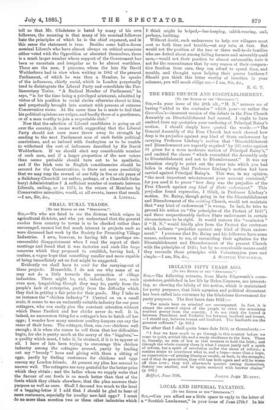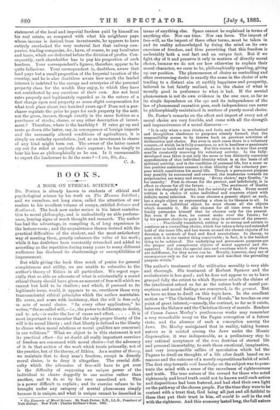LOCAL AND IMPERIAL TAXATION.
ITO THE EDITOR OF THE "SPECTATOR."' SIR,—Can you afford me a little space to reply to the letter of a " Scottish Landowner," in your issue of June 27th ? In his
statement of the local and imperial Burdens paid by himself on his real estate, as compared with what his neighbour pays whose income is derived from investments, he appears to have entirely overlooked the very material fact that railway com- panies, trading companies, &c., have, of course, to pay local rates and taxes, which are deducted before the division of profits. Con- sequently, each shareholder has to pay his proportion of such burdens. Your correspondent's figures, therefore, appear to be quite fallacious. Your correspondent is, doubtless, aware that land pays but a small proportion of the Imperial taxation of the country, and he is also doubtless aware how much the landed interest is indebted to the energy and enterprise of the personal property class for the wealth they enjoy, to which they have not contributed by any exertions of their own. Are not local rates properly and legitimately regarded as in the nature of a first charge upon real property as some slight compensation for what took place about two hundred years ago ? Does not a pur- chaser regulate the price he pays for such property by the nett, not the gross, income, though exactly in the same fashion as a purchaser of stocks, shares, or any other description of invest- ment ? Therefore, where is the hardship P If rates go up and rents go down (the latter, say, in consequence of foreign imports and the necessarily altered conditions of agriculture), it is simply an unlucky speculation, just as an investment in shares of any kind might turn out. The owner 'of the latter cannot cry out for relief at anybody else's expense ; he has simply to bear his loss as philosophically as he can. Is it unreasonable to expect the landowner to do the same ? —I am, Sir, &c., C. A.



































 Previous page
Previous page